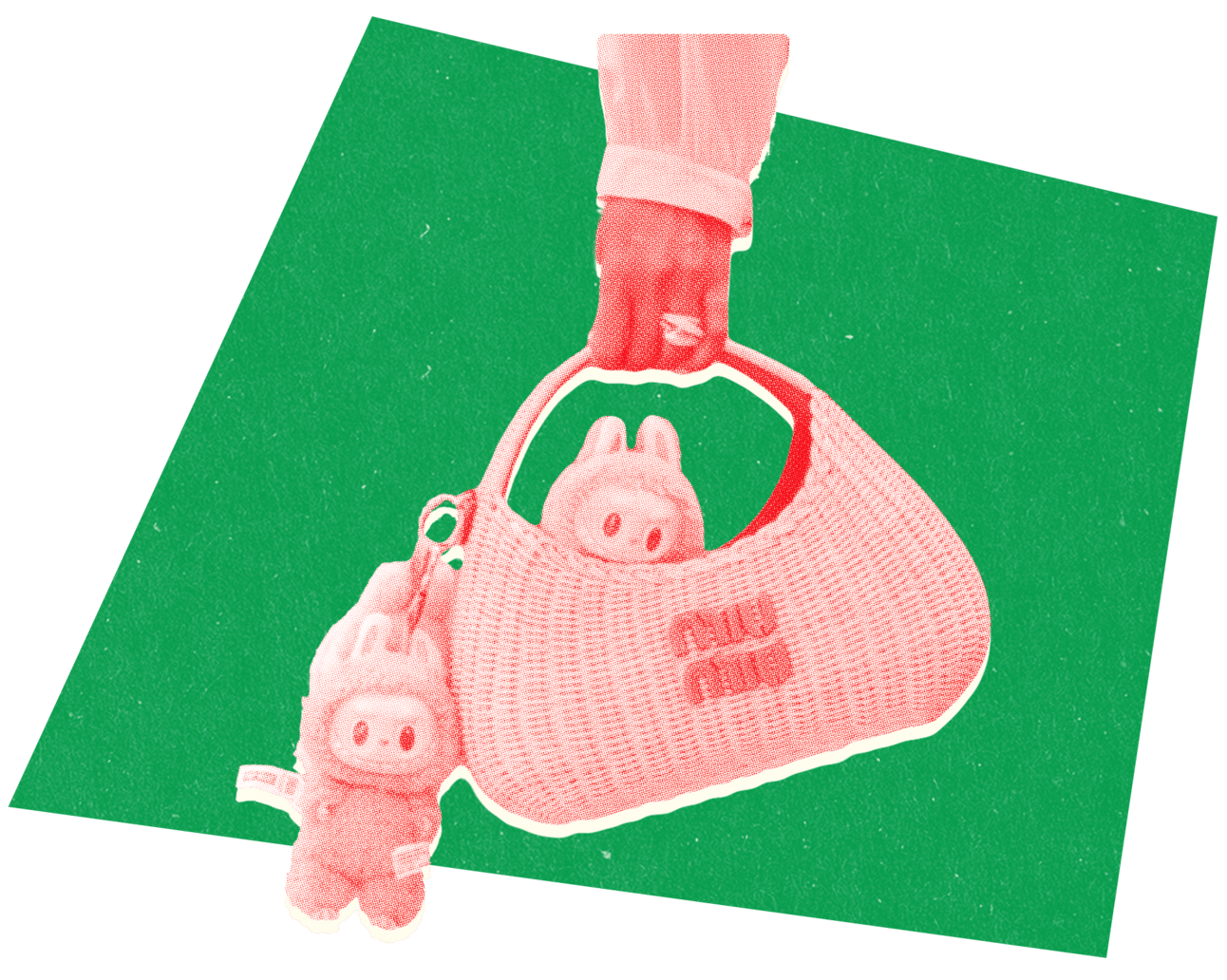- Three Curious Things
- Posts
- Stack it neatly, love it weirdly, lose it quietly
Stack it neatly, love it weirdly, lose it quietly
Peace of mind, shrink-wrapped and ready to go. Just follow the steps.

This week’s picks explore how our craving for calm has been cleverly packaged and sold back to us. From LEGO sets marketed as therapeutic adult play, to $30 mischievous dolls promising “harmless escapism,” to AI bots flooding lo-fi playlists with algorithmic chill - every corner of comfort seems monetized by someone who knows exactly how anxious we all are.
And, heads up, next week’s issue will be guest-curated by Noel Tantinya, an independent creative director, brand exec, and self-described racquet-sport maximalist.

1. Adulting is hard. LEGO has instructions.
Remember when LEGO meant dumping a bucket of bricks on the floor and building whatever your eight-year-old brain could dream up? Well, LEGO noticed those kids grew into stressed-out adults who now crave clear instructions and achievable goals. So the company pivoted hard into the “adulting is exhausting, here’s a 4,000-piece Millennium Falcon” market. And it’s been a goldmine. In 2021 alone, LEGO’s revenue jumped 27% as grown-ups rediscovered the oddly soothing magic of step-by-step directions.
The genius wasn’t just harder sets. It was recognizing that adult creativity runs on a different fuel. Kids want infinite possibilities. Adults want structure, closure, and something nice to put on the shelf. LEGO’s “Creator Expert” line and its galaxy of licensed kits offer both nostalgia and what their research calls “a relaxing, calming experience” for people otherwise drowning in vague deadlines and existential dread.

2. Late stage capitalism never looked so cute.
Somewhere between Hello Kitty and economic uncertainty, a tribe of snaggletoothed Nordic elves called Labubu became the most unlikely global obsession. These fuzzy little troublemakers, described as "well-intentioned but mischievous", have people lining up at 4 a.m. outside Pop Mart stores, crashing websites, and getting stopped by TSA agents who apparently find dozen of tiny dolls suspicious. When Lisa from Blackpink and Rihanna start clipping $30 collectibles to their Louis Vuitton bags, you know something beautifully absurd is happening in the cultural zeitgeist.
What makes Labubu fascinating isn't just the 726% revenue growth or the fact that grown adults are camping overnight for toys. It's how perfectly they've captured our collective need for harmless escapism. In a world drowning in serious problems, these impish creatures offer something brilliantly simple: a politics-free conversation starter that fits in your pocket. The blind box strategy keeps the mystery alive, while the cottage industry of tiny outfits and car seats proves that sometimes the most successful products are the ones that give people permission to be playfully ridiculous.

3. Lo-Fi was perfect. That’s what made it AI bait.
Those dreamy lo-fi YouTube channels that soundtracked your late-night study sessions just got invaded by an army of algorithmic zombies. What started as a cozy ecosystem of bedroom producers crafting tender, dusty beats has devolved into a sludge stream of bot-generated background noise, churning out endless playlists with titles like “Happy Morning Jazz | Elegant Bossa Nova in Luxury Cliffside Cabin.”
The human cost is real. Producers who once made a decent living, now find their work buried under machine-made mush. Some are leaving music altogether. And the cruel irony is that lo-fi was almost designed for this kind of takeover: no vocals to trip the uncanny wire, visuals straight out of an image generator’s dream, and a genre meant to be passively consumed. It’s dead internet theory in action. A comforting genre stripped of its humanity and turned into wallpaper by systems that can mimic the vibe but completely miss the soul.
Found something curious? Or maybe you want to be a guest curator for one of the next issues? Simply hit ↩️ reply.
Reply